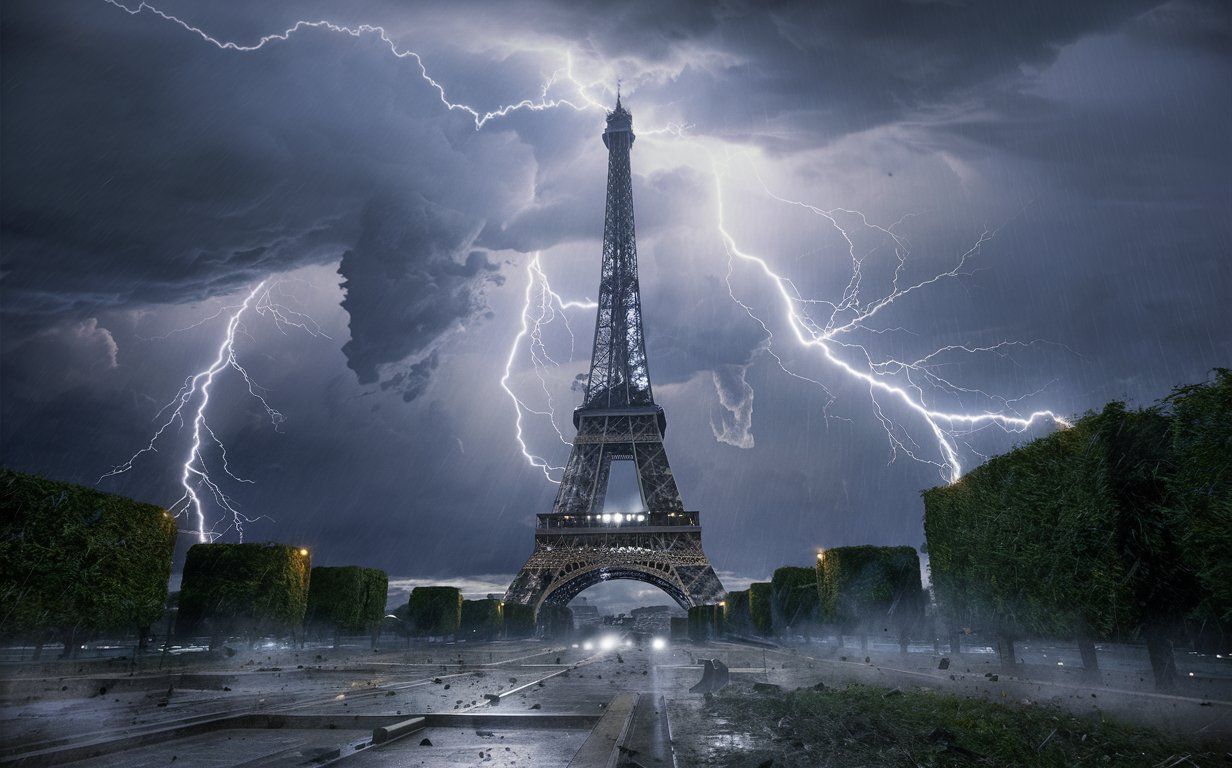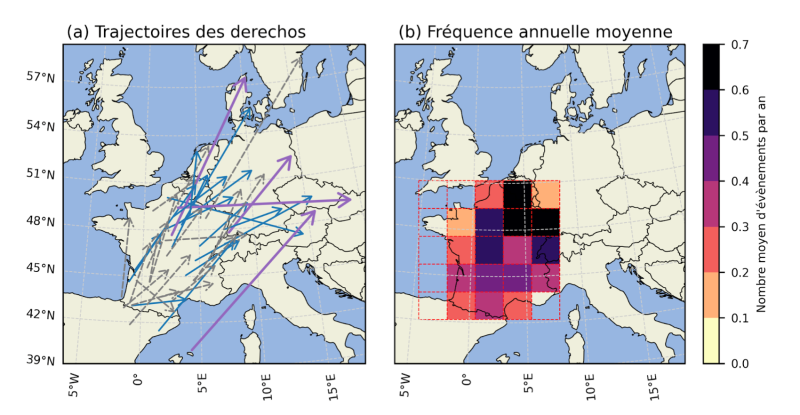Follow us on Google News (click on ☆)
On the night of August 17 to 18, 2022, a line of thunderstorms formed near the Balearic Islands, quickly moving northeast and hitting Corsica, Italy, Slovenia, Austria, and then the Czech Republic in just 12 hours. Wind gusts reaching up to 140 mph (225 km/h) in Corsica resulted in the death of 12 people and injured 106 others, also causing significant material damage.

A study has, for the first time, analyzed the occurrence of derechos in France, especially during the "warm season" from May to September. Between 2000 and 2022, 38 such events were recorded, with an average frequency of 1.7 events per year, equating to nearly 5 events every 3 years.
These storms affect almost the entire French territory, but their frequency is higher in the northeast and east of the country, with events also often concerning Switzerland, the Benelux, and Germany. This study thus contributes to a better characterization of the risk associated with these extreme weather events in France and Europe.
Furthermore, the study explores the relationship between derechos and climate change. The authors observe an increase in atmospheric instability in the recent period, which induces a potential intensification of storms. This increase is linked to two components: on one hand, an increase in heat and humidity in the lower layers of the atmosphere, an effect of anthropogenic greenhouse gas emissions but also possibly influenced by natural variability; on the other hand, a change in wind patterns, which is primarily due to the natural variability of the climate.

© Reference
Therefore, this study is a first step in understanding the role of climate change in the intensification of convective phenomena in Europe. This field of research could notably benefit from the assistance of artificial intelligence in understanding and emulating derechos.
References:
Fery, L. and Faranda, D.: Analysing 23 years of warm-season derechos in France: a climatology and investigation of synoptic and environmental changes, Weather Clim. Dynam., 5, 439-461, 2024.